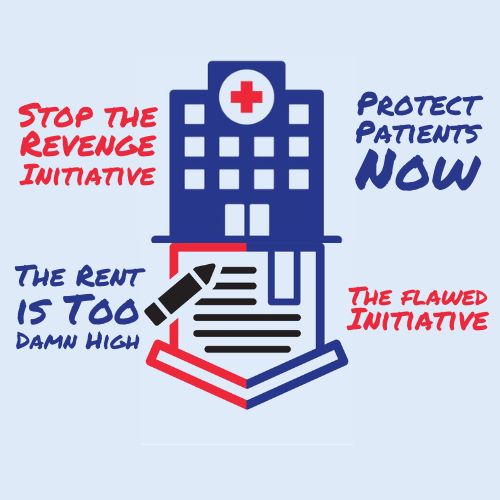On Tuesday, November 5, 2024, 10 propositions will be either passed of denied. Two of these propositions will impact voters’ healthcare and rent prices. Proposition 33, which raises limits on rent control, and 34, which limits spending of healthcare foundations, may not appear related, but they could affect each other.
Healthcare providers and advocacy organizations that could be affected by prop 34, such as the AIDs Healthcare Foundation, have been spending revenue for political campaigning and advocacy, including on prop 33. Prop 34 could limit them from speaking out like this in the future.
What are these propositions?
Proposition 33 allows local governments authority over rent control on residential properties. If passed, the Costa-Hawkins Rental Housing Act of 1995 would be repealed. This would not allow local laws that limit rent increases and initial rental rates in residential regions. Repealing this act would mean that state law could not control the rent within cities and counties.
Passing prop 33 would allow local areas to strictly limit the amount that rent can be raised at a time. This will help renters who can’t keep up with the increasing rent rates, but it also may cause property values to drop, forcing landlords to raise rent prices wherever they can.
Proposition 34 limits spending of revenues from prescription drugs by certain healthcare providers. Specifically, it would require them to spend “98% of revenues from federal discount prescription drug program,” on patient care, according to the Official Voter Information Guide. This would be enforced with penalties on offending providers, such as discontinuing their function as a healthcare provider for a period of time. Prop 34 also allows drug prices to be negotiated by the state.
With Prop 34, the prices of prescription drugs will lower and become controlled by the people. However, it will lower the funding for some organizations that support political movements.
How exactly would proposition 34 affect proposition 33?
The AIDs Healthcare Foundation is currently sponsoring the campaign to pass prop 33. The foundation is a nonprofit organization that provides medical care, especially for HIV, and advocates and lobbies for measures that may help those with HIV. It is a healthcare foundation, but it also is important in funding said groups.
They spend some of their prescription drug revenue on rent control and other political advocacy, and if their spending is limited, as proposition 34 would do, this could affect their voice and acts of advocacy.
Some claim that Proposition 34 is targeting the AIDs Healthcare Foundation, with Vote No On Prop 34 even going as far as to call it a “revenge initiative funded by corporate landlords and billionaires”. This website claims that it would silence the AHF and other opposing forces by limiting the money they can spend on things such as political influence.
While proposition 34 could affect the AIDs Healthcare Foundation and other organizations negatively, it could ensure that patients get the care they need and limit unnecessary spending such as advertisement, and there is a lack of evidence that it deliberately targets such foundations.
Who does and does not support these propositions?
It is important to understand the forces that speak out on the issue, and recognize their bias and why they may choose their sides.
Many of the organizations that oppose proposition 34 support proposition 33, such as UNITE HERE (the Union of Needletrades, Industrial, Textile Employees, Hotel Employees and Restaurant Employees International Union), Local 11, the AIDs Healthcare Organization, Consumer Watchdog, and the California Apartment association. According to Cal Matters, the AIDs Healthcare Organization has contributed $30.5 million out of the $31.2 million raised for proposition 33, showing they are the biggest supporter.
It could be assumed that the supporters of proposition 33 do not want their main source of support to be limited by the amount of money they can contribute. Proposition 34 could affect the supporting side of proposition 33, which is mostly aided by the AIDS Healthcare Foundation.


